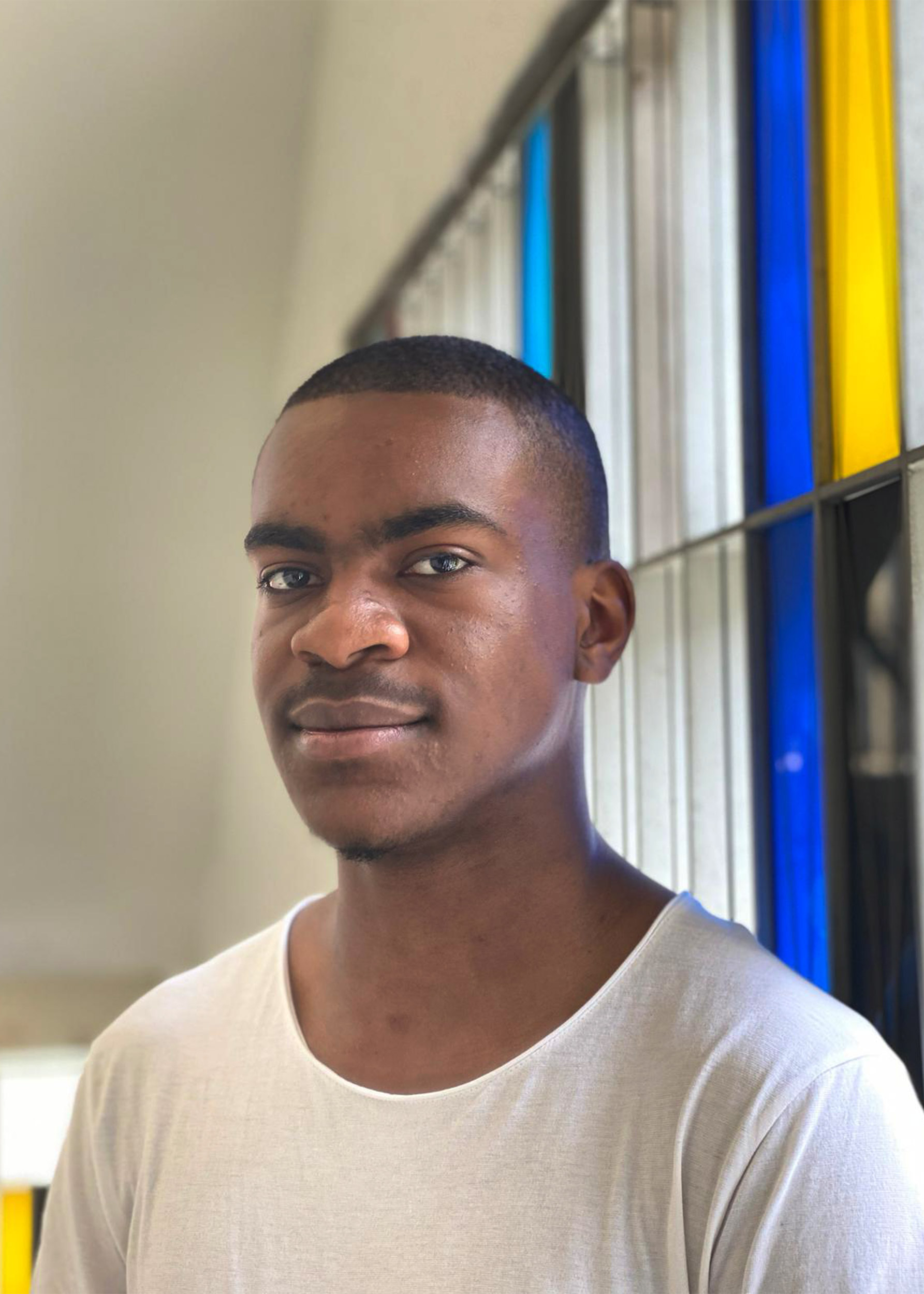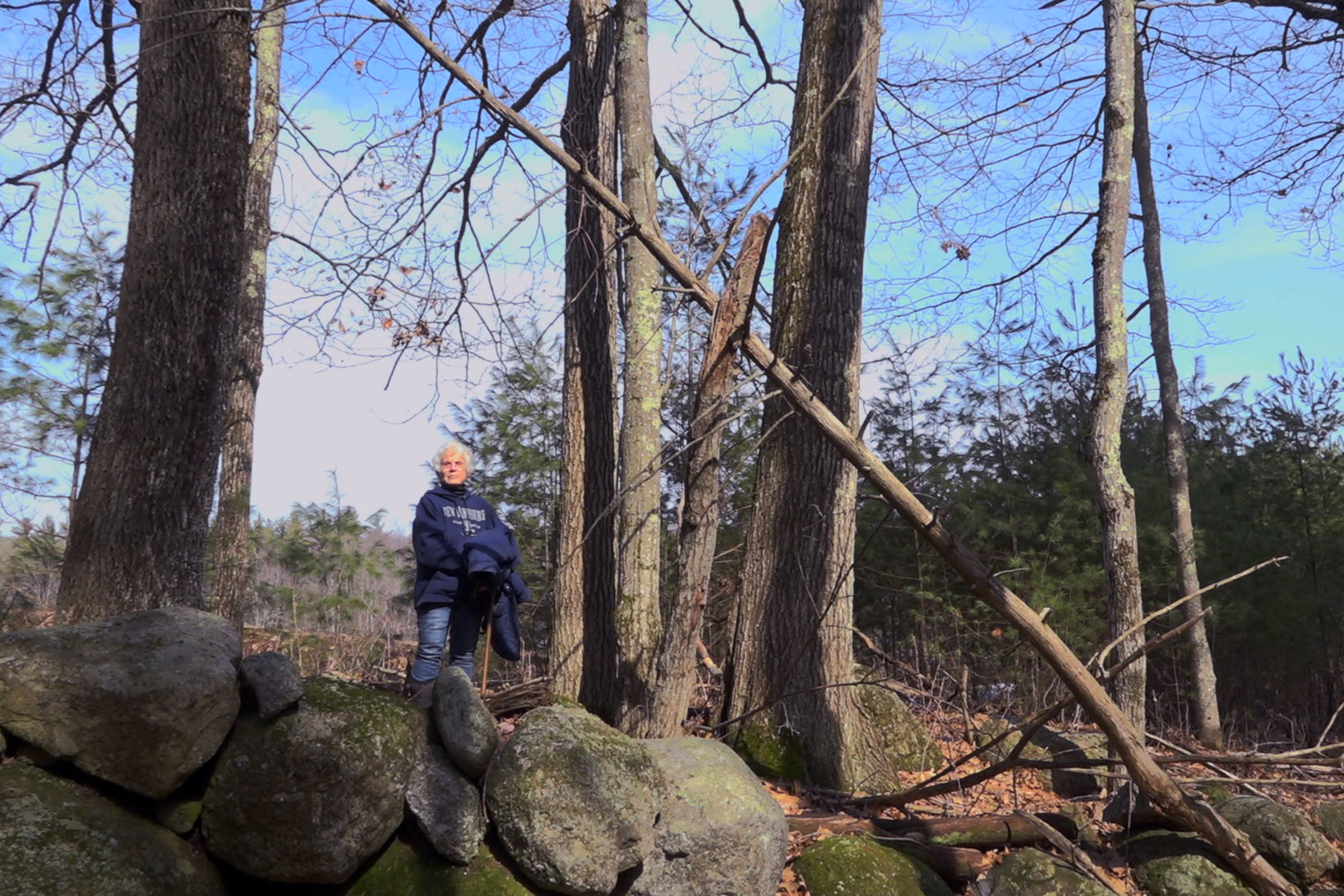Portrait of the documentarian as a young man
Film explores midcentury archive of Kalahari peoples

Photo courtesy of Che Applewhaite
Growing up in London, Che R. Applewhaite loved going to art exhibitions and film screenings. He would often chronicle his experiences through blogging and journaling. At Harvard, he wrote articles on culture and politics for campus publications like the Harvard Political Review and the Harvard Advocate. While he has long orbited the art scene, Applewhaite ’21 never considered himself an artist until he made his first short documentary, “A New England Document,” last year.
The film was an official selection at the 2020 Sheffield Doc/Fest, a prominent global documentary film festival, and premiered online this summer. “A New England Document” profiles Lorna and Lawrence Marshall and details their extended expeditions with their children to Africa’s Kalahari Desert starting in the 1950s. But it also explores Applewhaite’s personal and intellectual concerns with history and with colonialism as a native of Trinidad and Tobago, as well as related questions of the field of anthropology, which he studies at Harvard.
“I got to see how people [in a family] can have very different life paths and outcomes, and I wanted to show that in the film.”
Che R. Applewhaite ’21
The 16-minute production features archival images and documents from the Laurence K. and Lorna J. Marshall Collection, housed at the Peabody Museum of Archaeology and Ethnology. The material was gathered over 11 years by Lorna, an anthropologist, and Laurence, founder of the aerospace and defense firm Raytheon, and documents the lives of Indigenous peoples as they transition from a migratory life as hunter-gatherers to one on a preserve.
Applewhaite, a joint concentrator in anthropology and history and literature, used the Marshall collection as the foundation for his film after attending the Peabody exhibition “Kalahari Perspectives: Anthropology, Photography, and the Marshall Family” in 2019. He was struck by the groundbreaking photography that captured everyday life for the G/wi and Ju/’hoansi Indigenous peoples prior to extended contact with Western people, but he also came away uneasy about the stories he wasn’t hearing from the subjects of the photographs.
Having access to the collection, which includes 40,000 photographs, “allowed me to work through my own relationship to the archive [by] looking through items firsthand. It was quite haunting to see some of the photos of the G/wi and Ju/’hoansi Indigenous people being looked at in a similar way to people in the British colonies” around the world.
Over the course of the spring semester, Applewhaite went through the Marshalls’ photographs and diaries, and collected and edited footage of the items he found. He also taught himself how to organize a production schedule, create a storyboard, do camerawork, and edit video, guided by Joana Pimenta, interim director of the Film Study Center, director of graduate studies for Critical Media Practice, and a visiting lecturer on Art, Film, and Visual Studies.
He applied lessons learned in “Art of the Real: Rethinking Documentary,” a fall 2019 course taught by Dennis Lim, director of programming at the Film Society of Lincoln Center and a visiting lecturer on AFVS. In the class, Applewhaite and his peers watched historically significant documentaries like “Chronicle of a Summer” by Jean Rouch and Edgar Morin, “Handsworth Songs” by John Akomfrah of the U.K.’s Black Audio Film Collective, and “A Thousand Suns” by Mati Diop.
“I really didn’t see myself as an artist, and [that class] helped me understand how capacious documentary film is,” said Applewhaite. As an anthropology student, he wanted to create a new kind of visual anthropology document that brought the Marshalls’ work into a contemporary context and expressed his own worldview as a descendent of colonized peoples.
“I was interested in how [I could] reckon with the silences in the archives that prevent me from having a fuller understanding of my own history as a person under an empire,” he said.

Applewhaite’s connections to the Marshall archive deepened after meeting Elizabeth Marshall Thomas, daughter of the collection’s creators and a bestselling author of work on animal consciousness. She invited Applewhaite to her home in New Hampshire to film its grounds and record her reading from her own writings and those of her parents for the film’s narration. Applewhaite, who also recorded his own readings of Lorna and Laurence Marshall’s diaries for the film, stressed the importance of including both the Marshalls’ words and his own voice in the work.
“Reading some of the things she has written and having conversations with her about her family” helped strengthen the film, said Applewhaite. “I got to see how people [in a family] can have very different life paths and outcomes, and I wanted to show that in the film.”
With the support of mentors at Harvard and beyond, Applewhaite has continued to create films, and is working on a creative senior thesis documentary about a St. Louis youth athletics team. And he will write as a Berta Greenwald Ledecky Undergraduate Fellow at Harvard Magazine this academic year.
“I think the success of Che’s project has a lot to do with his working methods: He was careful, open-minded, and really examined the materials he found, without jumping to foregone conclusions,” said Ilisa Barbash, the Peabody Museum curator of visual anthropology who curated the Marshall family exhibition and was Applewhaite’s first point of contact when gathering material for the film.
Noting Applewhaite’s extensive archival research and personal outreach to Elizabeth Marshall Thomas, Barbash added: “He’s inquisitive and creative, and ended up making a film that is interesting, provocative, and deeply ethical.”






